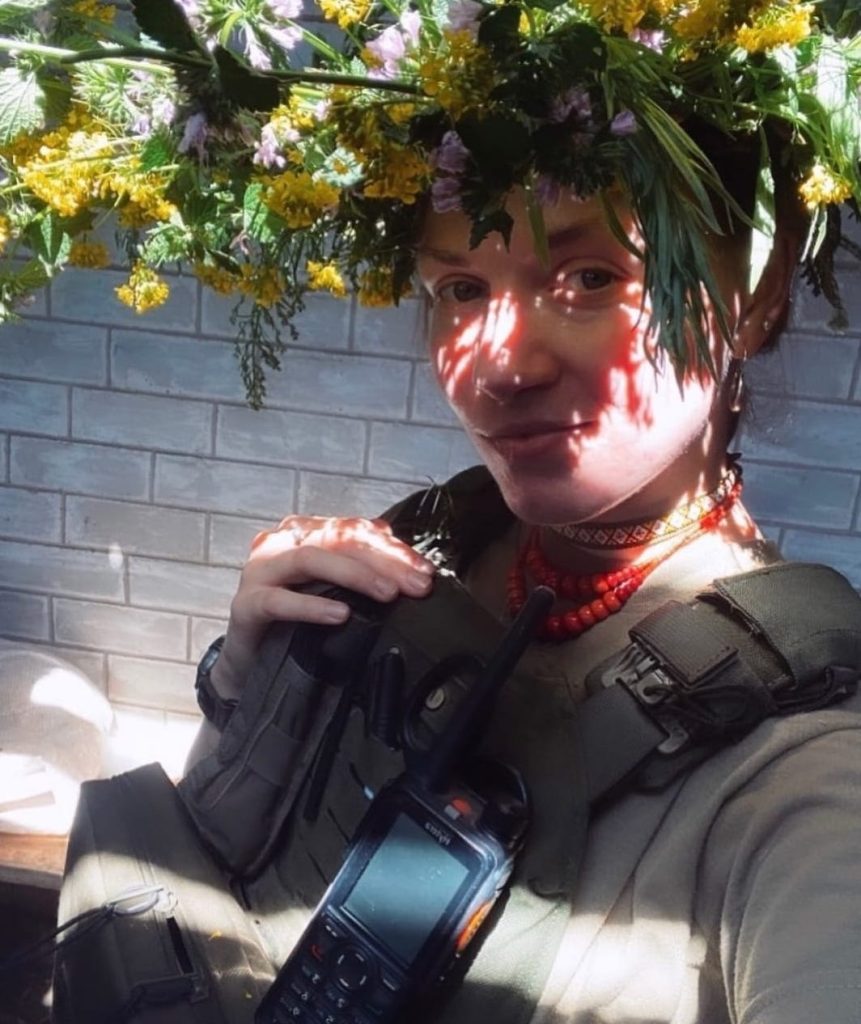Alla Pushkarchuk, a Ukrainian journalist and soldier, known by her call sign “Ruta,” was tragically killed in action in Donetsk Oblast on April 25. Her former colleague and chief editor of the Ukrainian news outlet the Weekly, Dmytro Krapyvenko, reported her death. Pushkarchuk joined the Armed Forces in 2014 and later became a news reporter at the Weekly before transitioning to a cultural columnist. She was also involved in coordinating projects focused on authors suffering political imprisonment. Pushkarchuk, with a background in theater studies, had dreams of becoming a theater critic. Her death marks the 77th media worker killed as a result of Russia’s war against Ukraine, with 567 crimes committed against journalists and media by Russian forces since the invasion began.
The mental health crisis among Ukrainian soldiers is becoming increasingly severe as troop shortages take their toll. Combat medic Olena found herself paralyzed with fear during a mission when she was unable to perform her duties as her fellow soldiers were being wounded. The stress and trauma of war have led to a rise in cases of post-traumatic stress disorder among Ukrainian soldiers. Many soldiers, including Olena, struggle to cope with the realities of war and the mental health implications of their experiences on the front lines. With limited resources and support available for soldiers dealing with mental health issues, the crisis continues to grow as the conflict in Ukraine persists.
The impact of the ongoing conflict in Ukraine extends beyond the battlefield, affecting journalists and media workers who risk their lives to report on the war. Pushkarchuk’s death serves as a grim reminder of the dangers faced by journalists covering the conflict. Russian forces have targeted journalists and media outlets in Ukraine, committing numerous crimes against those who seek to report the truth. The Institute for Mass Information reports that 567 crimes have been committed against journalists and media in Ukraine since the invasion began, highlighting the risks faced by those working in the media industry in the region. Pushkarchuk’s passion for her work and dedication to reporting on important issues will not be forgotten, as her legacy serves as a testament to the bravery of journalists in Ukraine.
The Ukrainian military continues to face challenges on multiple fronts, with troop shortages and resource constraints impacting their ability to effectively defend their country. Soldiers like Pushkarchuk who have dedicated themselves to serving their country face immense risks and challenges as they navigate the complexities of war. The mental health implications of combat and the toll it takes on soldiers like Olena highlight the need for increased support and resources for those serving on the front lines. As the conflict in Ukraine continues, the resilience and determination of Ukrainian soldiers and journalists remain steadfast in the face of adversity, demonstrating their unwavering commitment to defending their country and upholding the principles of freedom and democracy.
As the world continues to witness the ongoing conflict in Ukraine, it is essential to support independent journalism and media outlets that provide crucial information and insights into the situation on the ground. Journalists like Pushkarchuk play a vital role in reporting on the realities of war and the impact it has on communities and individuals. By supporting independent journalism in Ukraine, individuals can help ensure that the voices of those affected by the conflict are heard and that important stories are brought to light. The work of journalists and media workers in Ukraine is essential in raising awareness about the human cost of war and holding those responsible for crimes against journalists and media outlets accountable. By joining the fight to support independent journalism in Ukraine, individuals can make a difference in advocating for press freedom and the protection of those who risk their lives to report on the truth.


